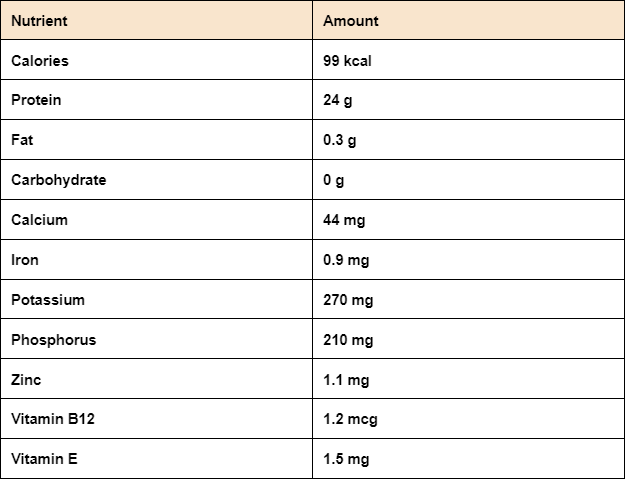As a pet owner with a furry friend, you likely enjoy finding new and exciting food flavors that they’ll love. But when it comes to human food like seafood it is necessary to keep a check before feeding them whether it is healthy or not. One common question you have asked as a pet owner is can dogs eat shrimp? We are here to explore the answer to your question in detail. It is not a complicated one, but we have to find out if shrimp is safe and healthy for our canine friend.
Can Dogs Eat Shrimp? Consider Important Points
The simple answer of, can dogs eat shrimp is “Yes.” Shrimps are not only a safe addition to its diet, but it is also healthy and nutritious. But you have to consider the proper portion cooking style and health benefits while feeding shrimp to your dog.
A study published in the American Journal of Veterinary Medical Association tells us about the nutritional benefits of homemade dog diets. Studies suggest that diets that include seafood such as shrimp meet the recommended essential nutritional level of other homemade diets for dogs. Therefore, feeding shrimp to your dog is safe and healthy and a delectable, tasty addition to your furry friend’s diet.

Nutritional and Health Benefits of Shrimp for Dogs
There are many health benefits to eating shrimp by dogs. It’s time to check some of them, and these are as follows:
- Shrimp are low in carbohydrates, fats, and calories, which help dogs avoid obesity, and they never become overweight.
- It contains a considerable amount of protein that helps to maintain a healthy body by building strong muscles.
- Shrimp is a good source of many vitamins and minerals, such as Vitamin B12, phosphorus, choline, Niacin, Potassium, Magnesium, Iodine, and Antioxidants, which can support health and well-being in dogs.
- Omega-3 fatty acids are present in shrimp that promote healthy coats and skin in dogs.
- Antioxidants, including astaxanthin, help the body fight against diseases and infection because they boost your pup’s immune system.
The image below shows the nutritional value of Shrimp per 100 grams.

Your pup will not only love the taste of shrimp but also enjoy its nutritious value added to their daily diet. But before feeding shrimp, keep in mind that shrimp are high in cholesterol, so don’t feed your canine shrimp daily. Otherwise, it leads to gastrointestinal upset and also increases the cholesterol level of the dog.
Preparing Shrimp for Dogs
After knowing that shrimps are safe for dogs, it is important to know how to prepare shrimps for dogs.
Raw shrimp
Raw shrimp are not good for dog’s health because they contain pathogens that have an adverse effect on dog health. If raw shrimp hasn’t been deshelled, it causes internal blockage and can be a choking hazard for dogs. Your pup can suffer from diarrhea, nausea, vomiting, and abdominal pain if they ingest raw shrimp. Therefore, it is necessary to cook shrimp to remove health hazards such as harmful bacteria and pathogens.
Note: When it comes to raw shrimp, this seafood isn’t good and healthy for dogs. This thing is common in dogs and cats, as you can’t feed your cat raw shrimp because of the same reasons.
Cooked Shrimp
It is important to use fully cooked shrimp in dogs’ diets to avoid the risk of raw shrimp. You can boil, grill, or bake shrimp as well. All these cooking options are good and healthy for dogs. Cooked shrimp are the safest option if your dogs eat shrimp.
Remove the shell:
Shells and tails of shrimp are harmful to dogs and are difficult to digest and become a choking hazard for dogs therefore, it is important to remove the shell before you feed shrimp to your dog.
Avoid seasoning and fried shrimp.
Fried shrimp is not a good choice for a dog’s healthy diet because they contain seasoning and that can be toxic to dog health, such as garlic and onion. At the same time, oil frying can cause other health issues in dogs, including weight gain. So Fried shrimps are not recommended in the case of dogs. Seasoned shrimp with salt and spices are harmful so feed your furry friend with unseasoned shrimp to ensure health and safety.

Serving Size of Shrimp and Its Frequency for Dogs
It is important to consider the serving size and limit of feeding shrimp to your dog; otherwise, it is bad for dogs. Shrimp are healthy and nutritious, but only in case, if you serve them to your pup within limits and in a properly cooked manner.
Canine easily consumes shrimp, but the only condition is that you have to properly cook it without seasoning like onion, garlic, salt, and spices.
Shrimp should only be 10 % of your dog’s daily calorie intake, and that also depends upon your dog’s daily routine, activity level, and diet practice.
Ask a vet to give you a proper consultancy on a diet chart of your dog, including how much your dog eats shrimp.
Shrimp should be in your dog’s diet in adequate amounts, and it cannot be used on a daily basis because it will upset the stomach and cause indigestion. If shrimp are regularly given to your pet instead, occasionally, they will face serious health issues.
Shrimp should be cut into small pieces before it is given to your pet. Small pieces of shrimp make it easier to gulp and digest.
How Many Shrimp Can Dog Eat?
It depends on the dog’s body weight and breed, and the most prominent breeds and their portion of shrimp feeding are as follows:
- 2 to 20 Pounds extra small dogs such as Yorkies, Chihuahuas, Pomeranians, Pugs, and Shih Tzus take a half medium shrimp.
- Small dogs such as Miniature Australian Shepherds, Basenjis, and Beagles that are 21 to 30 pounds in weight can have one medium shrimp in their diet.
- Medium dogs, such as Border Collies, Australian cattle dogs, Basset Hounds, and Siberian Huskies, weighing about 31 to 50 pounds, can eat two medium shrimp.
- Large dogs of 51 to 90 pounds can have three medium shrimp-like Pit Bulls, Australian Shepherds, German Shepherds, and Labrador Retrievers.
- 91-pound dogs eat up to 4 medium shrimp, like Bernese Mountain Dogs, St. Bernards, and Great Pyrenees.
Introducing Shrimp into a Dog’s Diet
It is necessary to consult with your pet’s personal vet before you can introduce a new food to your canine diet. They will find out and help you to determine whether shrimp is a good and healthy diet for your dog.
For starting, a small portion is good and try to make small pieces of shrimp. Keep an eye on your pup to check how they react and what they feel about this new but yummy addition to their diet. This process will help pup owners to figure out whether their dog is allergic to shrimp or not.
Properly cooked shrimp is a better choice without any seasoning or sauces before you feed them with shrimp.
Monitor your dog’s condition after feeding shrimp to check for any signs of allergy or indigestion. If you feel they are getting upset with shrimp, immediately stop feeding them and take them to the vet.

Allergic Reactions and Other Risks of Shrimp for Dogs
Sometimes dogs get allergic reactions when they eat too much shrimp, or they have first-time shrimp. There are several symptoms of dog allergies and other health issues you will notice in your dogs due to shrimps, and these are as follows:
- Your dog will be lazy and feel fatigued.
- You will feel this pet food decreases their appetite.
- Your pup will look depressed and uncomfortable.
- It is also seen that they gulp or lick their lips, the air, and objects.
Some serious symptoms include vomiting, weakness, blood in their vomit or stool, excessive diarrhea, and sometimes collapse. Call your pup’s vet immediately to treat such a serious condition.
Conclusion:
It is concluded that shrimp is a safe and healthy treat for dogs but it is added to dog’s feed with proper care and adequate frequency so that they will ingest it easily and keep an eye on them to deal with any serious condition. I hope this helpful article will be beneficial for you to find out can dog eat shrimp in detail.
The source for the article is PetMd and expert advice from the American Kennel Club.







